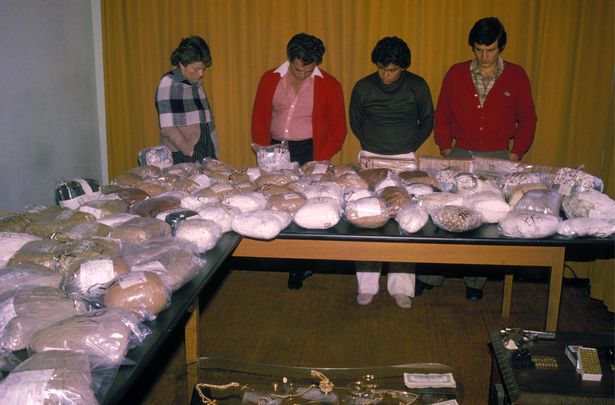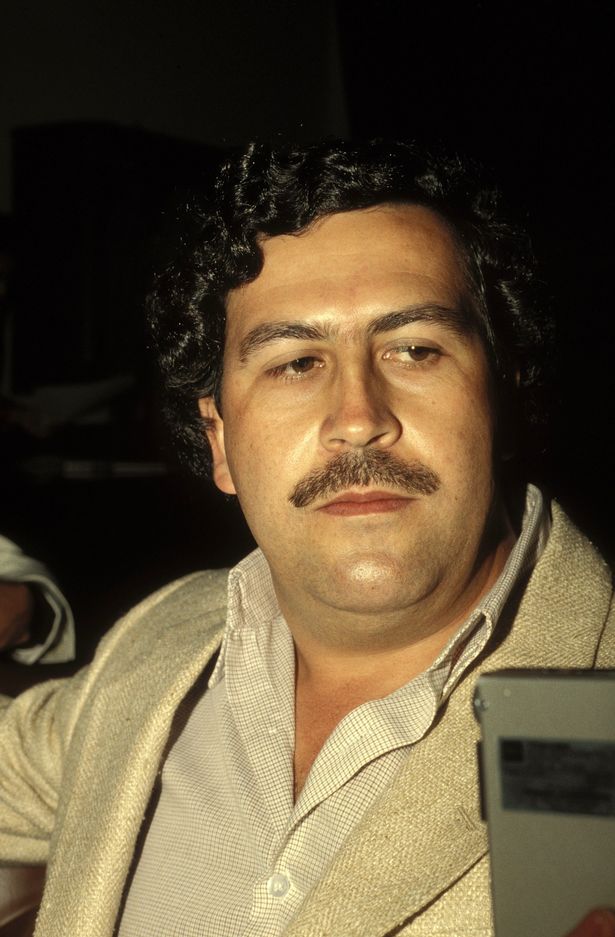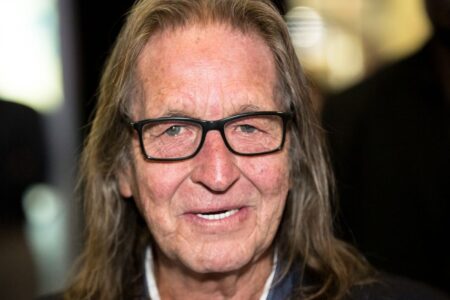Basking in the sunshine at Pablo Escobar’s notorious Hacienda ranch, George Jung watched as the drug lord casually executed a man gripped by two bodyguards.
“He simply looked at me and he said, ‘He betrayed me’,” the American explained. “They took him away and then he asked me what I’d like for dinner that night.”
This was the brutal reality of life in the cut-throat underworld Jung had helped build, having risen to become one of history’s most notorious cocaine smugglers – once worth an estimated $100million.
Yesterday, the 78-year-old, known as El Americano, passed away at his Boston flat, following recent health scares with liver and kidney failure.
At the height of his career, the kingpin was responsible for transporting an incredible 85 per cent of the cocaine supplied to the US throughout the 1970s and 1980s – in a story immortalised by the 2001 Johnny Depp film Blow.
Pals with Richard Burton and Elizabeth Taylor and jailed for 20 years over marijuana dealing, Jung stepped back from crime in later life, but his career has left a lasting impact on the bloody narco gang wars plaguing South America to this day.

(Image: Gamma-Rapho via Getty Images)
‘Fear junkie’ spotted market for pot in US
As a young college student selling pot to his friends, Jung had no grand dreams of becoming an international drugs smuggler.
His criminal enterprise began to snowball in the 1970s, however, when a friend told him he could buy marijuana cheaply in California and sell it for for profit in his home state of Massachusetts.

(Image: Gamma-Rapho via Getty Images)
“I had a large punch bowl of pot sitting on the table, for anybody to use at their leisure,” he explained to PBS.
“He asked me how much it was worth and I told him something like $60.00 per kilo. He told me that it sold for $300.00 back east in Amherst.
“The wheels began to turn and the next thing I knew we were purchasing the $60.00 kilos and transporting pot back to Amherst making a profit of approximately $200.00.”
Describing himself as a “fear junkie” unafraid of law enforcement, Jung was quickly was earning up to $100,000 a month as he expanded his operation to smuggle pot over from Mexico.
At one point based in Gold Gringo Gulch, he recalled living next door to a house owned by Richard Burton and Elizabeth Taylor, who he would drink with at a local bar.
“Liz had a little entourage carrying all her packages and everything,” he told High Times. “Dick looked at me and he took a drink, and he says, “There she is, the most beautiful b****h on the planet—and she’s mine.”
However, Jung’s drugs racket didn’t go unnoticed. In 1974, police caught him with 600 pounds of marijuana stuffed in his car, and he was sent to jail in Danbury, Connecticut.
From jail bird to ‘coke star’
Ironically, Jung’s first stint behind bars proved the inspiration for his transition into cocaine smuggling, after striking up a friendship with fellow inmate Carlos Lehder .
“He was looking for a way to transport cocaine out of Colombia and people to sell it in the United States – and there I was,” he said.
“It was like a marriage made in heaven, or hell in the end. But that’s basically how it worked out. Carlos and I spent close to a year together, working and planning every day.”
(Image: New Line/Avery Pix/Kobal/REX/Shutterstock)
Upon their release Lehder introduced Jung to Pablo Escobar, the up-and-coming leader of Colombia’s Medellin cartel.
The pair bought a plane and showed Escobar it was possible to smuggle the drug to the US in vast quantities by taking a detour through the Bahamas.
They began making millions of dollars in a “matter of days”, and Jung used it to indulge in a life of luxury – regularly becoming high on his own supply.
“I was a guy who had a lot of money and unlimited access to cocaine,” he said.
“Even if I looked like [Dracula actor] Bela Lugosi, I still had the most beautiful women on the planet because everybody at that time – especially women – were in love with cocaine.
“Basically I was no different than a rock star or a movie star. I was a coke star.”
‘I was out of my league’
As the US Drugs Enforcement Administration (DEA) launched a bitter campaign against the cartels, however, the tide began to turn against many of the Medellin cartel’s top operators.
In 1985, Jung was convicted of cocaine trafficking and sentenced to 15 years in prison. His time was reduced to four years for testifying against Ledher, who received a life sentence.
(Image: Getty Images)
Freed from jail, he returned to Escobar, drinking and taking copious amounts of cocaine at the Hacienda Napoles Ranch in Medellin.
However, now ravaged by addiction, Jung was also beginning to fear the darker side of the world’s most influential criminal.
During his cruel reign, Escobar is believed to have overseen the deaths of more than 4,000 people, and his accomplice was taken aback by the execution he witnessed at the ranch.
“I knew one thing for sure, that I was never going to betray him,” Jung admitted.
“I was playing out of my league. Basically, I really was, because I had never an inclination to execute anybody. But I stayed, though – I was on a road to self-destruction and I couldn’t turn the wheel to get off.”
‘Johnny Depp? Who’s that?’
In 1993, Escobar – by now a fugitive – was shot and killed by DEA officers in a dramatic rooftop raid in Medellin.
But despite his death, Jung was unable to leave their glamorous life of crime behind.
A year later, he was yet again caught smuggling Mexican marijuana. This time, he was sentenced to 20 years in prison in Fort Dix, New Jersey.
(Image: Instagram)
Here, Jung spent a year writing his first book. The follow-up, Blow, attracted interest from movie producers – one of whom phoned him up one day to say they had found an actor to play him.
“The producer, Denis Leary, called and he said, ‘I found the right person – Johnny Depp’,” Jung revealed. “And I said, ‘Who the hell is that?’ And he said, ‘Edward Scissorhands.’ And I said, ‘What the hell is that?’
“Johnny got the special visit, and he came in and he looked like he had slept in a dumpster.
“I said, ‘Jesus Christ, what happened to you?’ He said, ‘I was up all night thinking of what to bring you. It drove me crazy.’ And he handed me On the Road, by Kerouac. He said, ‘This is my Bible. I carry it with me everywhere I go. I want you to have it’.”
Finally released from jail in 2014, Jung – by now 71 – stepped back from the underworld, attempting to cash in on his fame with media appearances and a new book.
He died on Wednesday morning at his home, where he was receiving hospice treatment, with his girlfriend Ronda and friend Roger by his side.
Reflecting on his life in his later years, the smuggler appeared to have no regrets about the decades of violence that stemmed from his work with Escobar.
“We live as we die – alone,” he said. “Even though I spent 20 years in prison, a few other years [incarcerated] here and there, I’ve had so many great experiences in my life, of living total free will, that I wouldn’t change it for all the gold in the Earth.”

